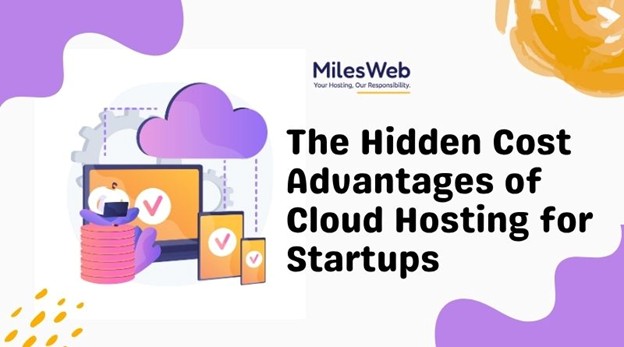The Hidden Cost Advantages of Cloud Hosting for Startups
In a startup, nothing is small—every rupee, every dollar, and every passing minute decides how far you can go. Big corporations might survive a few wrong bets, but for a founder using a cloud server for small business with limited capital, wasted money is like oxygen lost. That’s why decisions around infrastructure—especially hosting—are rarely just technical choices. They’re financial strategies.
Cloud hosting isn’t just about spinning up servers fast. The true tale lies in how it disrupts the cost game for startups. Most founders hear the “pay-as-you-go” tagline and think of ease. What they fail to notice, however, is the underlying cost-benefit that adds up when you compare cloud hosting sharedserver versus on-premise configurations.
Let’s break down those secret savings.
No Heavy Upfront Investment
Conventional hosting models often force companies into a capital expenditure trap. Imagine you’re building a SaaS tool—you’d need to buy or lease servers, set up physical infrastructure, hire admins, and lock yourself into contracts before you even acquire your first user.
Cloud hosting flips this. You don’t buy; you rent, flexibly. For a startup, that means preserving capital for product, talent, and growth rather than tying it up in machines that depreciate faster than your laptop.
Scaling Without Overbuying
One of the silent killers of early-stage ventures is over-provisioning. Startups often guess their growth curve wrong—either they buy too little and crash when traffic spikes, or buy too much and watch idle servers burn through their budget.
With cloud hosting, you pay for actual usage. If you get 500 signups today and 50,000 tomorrow, your infrastructure scales without you scrambling to order new hardware. The advantage isn’t just technical—it’s financial. You’re not billed for “maybe”—only for what actually runs.
Lower IT Staffing Costs
Relying on an in-house crew for server tuning isn’t just complex—it’s costly. Salaries, benefits, 24/7 monitoring—it adds up. Cloud hosting providers include a lot of that expertise in the service.
Instead of paying full-time engineers to patch, secure, and maintain physical servers, you pay a fraction of that for a cloud service where those headaches are already handled. For a resource-constrained startup, that’s not just savings—it’s sanity.
Built-in Redundancy Saves Hidden Disaster Costs
Here’s a cost many don’t factor in: downtime. Imagine your e-commerce startup goes offline during a flash sale. Even an hour of downtime could mean lost customers, refunds, and damaged trust.
With on-premise or cheap shared hosting, redundancy is your responsibility. With cloud hosting, it comes pre-integrated. Data replication, automated backups, and recovery systems aren’t add-ons—they’re part of the deal. With providers like MielsWeb, the real advantage lies in skipping the disaster recovery cost.
Energy and Maintenance Savings
Running physical servers is not just about buying them—it’s about power, cooling, space, and ongoing maintenance. Cloud providers operate at a scale that makes these costs negligible for you.
Startups avoid the electricity bills, the AC units, the storage closets-turned-server-rooms, and the fire drills when something overheats. That’s a hidden saving no one highlights in glossy brochures, but founders who’ve been there know the pain it prevents.
Faster Time-to-Market (And Why That Saves Money)
In the startup world, speed is money. Launching late lets competitors take the lead. What once took weeks to set up now takes just minutes with cloud hosting.
The hidden cost advantage? Opportunity cost. Every day you spend waiting for servers is a day you’re not acquiring customers, not generating revenue, not learning from your market. The cloud shortens that gap, and faster iteration means fewer wasted cycles on the wrong bets.
Security Without the Overhead
Data breaches can destroy startups, not just financially but reputationally. Setting up enterprise-grade firewalls, intrusion detection, and compliance audits on your own is nearly impossible for a small team.
Cloud hosting platforms roll much of this into their infrastructure. You’re essentially piggybacking on security investments worth millions—something you couldn’t afford in-house. Again, the cost advantage is not in what you pay, but in what you don’t have to pay for separately.
Predictable Cash Flow
For startups, unpredictable bills can bring down operations. Conventional hosting typically includes surprise costs—replacement hardware, emergency upgrades, and even data center outages.
Cloud hosting provides more transparent, more predictable costs. Even when usage explodes, you know exactly what to expect because the cost translates directly to expansion. That predictability is pure gold when you’re managing investor reports, cash flow projections, and lean operations.
Final Considerations
For startups, cloud hosting isn’t a technology choice—it’s an economical lifeline. The hidden cost benefits—no up-front hardware, right-sized growth, reduced staffing, built-in redundancy, maintenance savings, quicker rollouts, and enterprise-level security—add up to one truth:
Cloud hosting allows startups to stretch every dollar further.
Founders who see this don’t simply save money—they’re free to concentrate on growth, innovation, and winning markets, while reliable cloud providers like MilesWeb take care of the servers. And in the startup world, that concentration can be the difference between burnout and breakthrough.


Leave a Reply